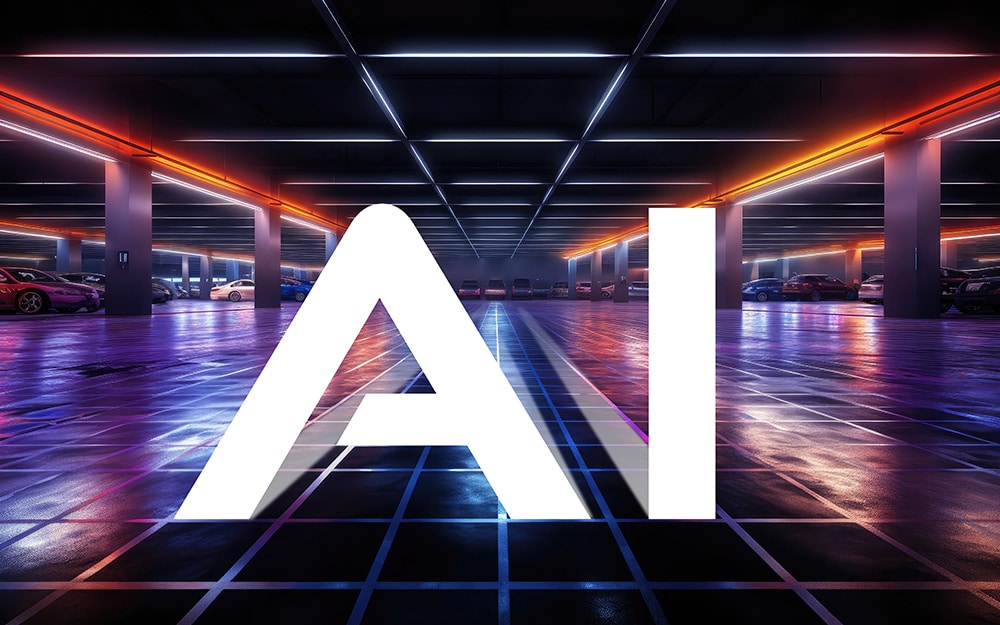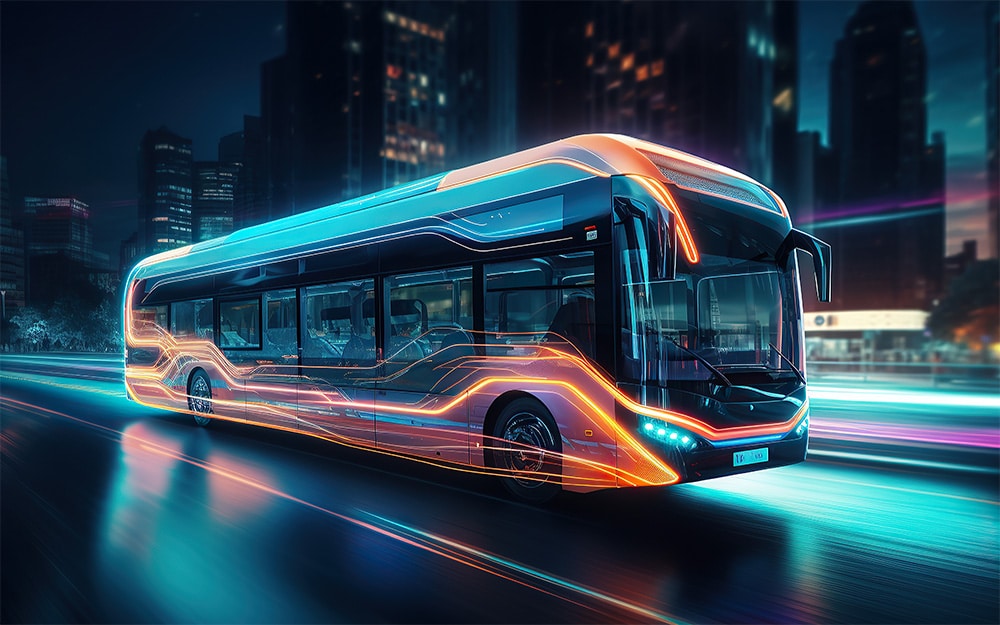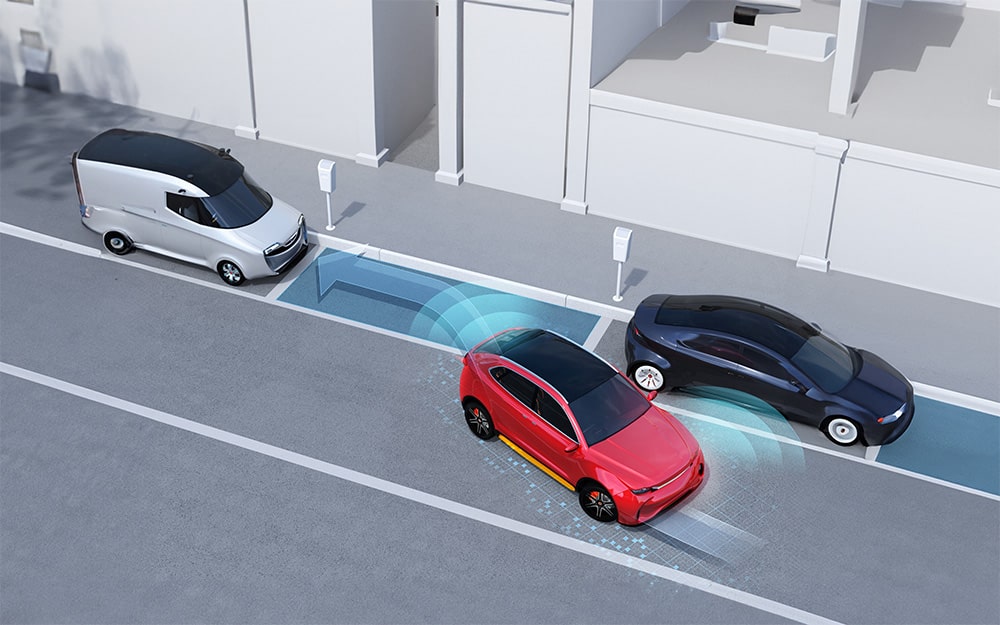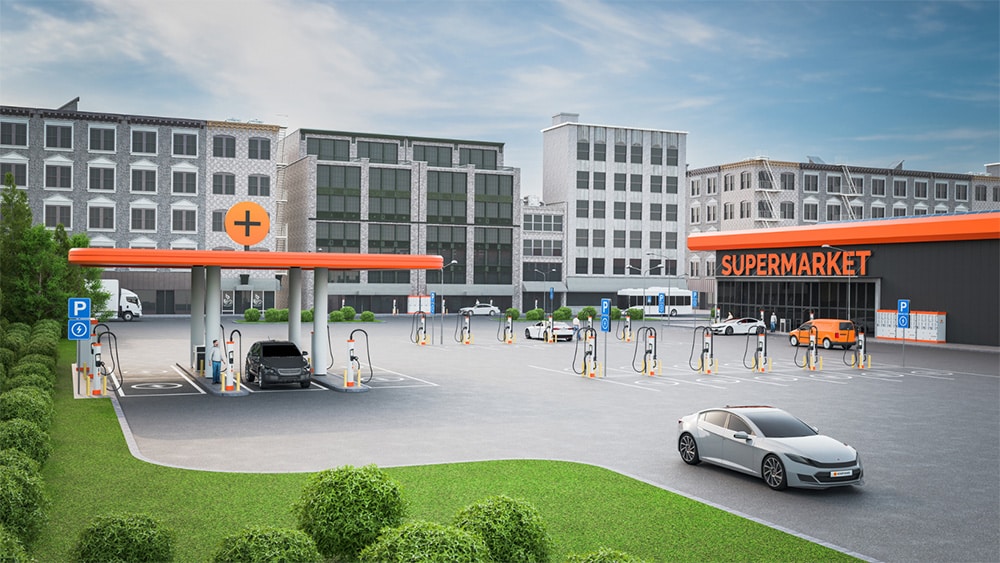Home » Innovation & Technology » Unlimited Potential
Innovation & Technology
Unlimited Potential
stock.adobe.com / Alesia
Understanding Where Artificial Intelligence Meets Parking
There is a lot of buzz in the parking industry regarding Artificial Intelligence (AI). Visiting with many in the parking industry about AI, people had reactions that varied from fear to cautious acceptance to enthusiastic support.
Whether you love the idea of AI or hate it, it is here and is becoming mainstream in many industries, including parking, and there is a lot to learn. Let’s start with some terms that will help us understand it a bit better.
Terms like AI and machine learning are often used interchangeably, but it is important to understand the difference. AI models often require machine learning to function effectively, as machine learning focuses on developing algorithms and models to enable computers to learn and make decisions from data. AI, in turn, uses machine learning techniques to perform various tasks. So, you can’t have AI without machine learning. As Dr. Manos Chatzopoulos, CEO of ParkZen, explains, “Machine Learning is the process, and AI is the outcome.”
Cardinal Tracking CEO Steve Leuschner says, “AI is good at things the human brain is not and is an incredible assistive technology for time-consuming tasks that deal with volumes of information and data.”
The world of AI is changing rapidly, providing great opportunities for improving efficiency, reducing costs, enhancing customer experience, and optimizing space utilization.
Thinking about how you can implement AI in your operation? Let’s explore some of the ways AI is changing the parking industry:
1. Smart Parking Systems
AI can power smart parking systems that use real-time data to guide drivers to available parking spaces, reducing the time spent searching for parking spots. Sensors, cameras, and data analysis can help monitor parking lot occupancy and provide live updates to drivers through mobile apps or electronic signage, reducing traffic congestion and improving traffic flow.
Emphasizing how AI facilitates a seamless parking experience, Dr. Chatzopoulos says, “AI empowers drivers to quickly locate available spots, eliminating the need for aimless searching. AI is used to predict parking availability and optimize search routes, particularly in large, organized settings like airports and universities. This capability eases current parking woes and is crucial in the broader vision of smart mobility and smart cities.”
2. Optimized Parking Space Allocation
AI algorithms can analyze historical data and current patterns to optimize the allocation of parking spaces, which includes predicting peak demand times, identifying underutilized areas, and adjusting parking prices dynamically to incentivize drivers to use less crowded locations.
3. Automated Payment Systems
AI-driven payment systems can automate the payment process, eliminating the need for manual ticketing and cash transactions. License plate recognition technology can identify vehicles entering and exiting the parking area, allowing for seamless, contactless payments. This use of AI streamlines the parking experience. No more stopping at a ticket booth, searching for change, or waiting in line to pay.
According to Mike Nesselrodt, Senior Public Safety Manager at ComSonics, a Genetec Unified Elite Partner, Genetec uses its machine learning core (MLC) in its LPR products, so the recognition of characters on license plates improves as the machine “learns” through firmware updates and continuously improves its accuracy.
4. Parking Violation Detection
AI-powered cameras and image recognition can identify parking violations, such as vehicles parked in non-designated areas or exceeding time limits. Automated enforcement can improve compliance and free up personnel for other tasks. Using AI in this manner can improve the parking experience with a smoother, more efficient parking process.
5. Traffic Flow Optimization
AI can analyze traffic patterns and predict congestion, allowing parking operators to adjust entry and exit routes in real-time, leading to smoother traffic flow and reduced gridlock around parking areas. This reduces frustration, saves time for drivers who can avoid traffic delays, and allows people to reach their destination faster.
6. Predictive Maintenance
AI can monitor parking equipment and infrastructure, such as payment machines and entry barriers, to predict maintenance needs accurately. This proactive approach helps prevent breakdowns and ensures better overall operational efficiency, cost savings, reduced downtime, improved safety, enhanced customer experience, and optimized resource allocation.
7. Customer Service and Support
AI-powered chatbots can provide customer support, answer frequently asked questions, assist with payments, and handle general inquiries, improving customer satisfaction and reducing the burden on human customer service agents.
While it may be nice to talk to a live person, the AI Chatbots can offer round-the-clock availability and efficient handling of common inquiries, making for a more efficient and effective customer service operation.
8. Environmental Impact Reduction
AI can contribute to environmental sustainability in the parking industry by optimizing parking space allocation, promoting carpooling, and encouraging the use of public transportation through integrated information systems. This can play a significant role in reducing environmental impact and promoting eco-friendly transportation options.
9. Security and Safety
AI-based video surveillance and analytics can enhance security in parking areas by detecting suspicious activities, monitoring vehicle movement, and alerting security personnel in case of potential threats.
AI-based video surveillance cameras installed in a parking lot can continuously monitor the environment. When the system detects suspicious activities, such as unauthorized individuals loitering around vehicles, attempting theft, or engaging in vandalism, it can immediately trigger an alert that can be sent in real-time to security personnel or integrated with the facility’s security system.
At the 2023 Florida Transportation and Parking Association (FTPA) Conference, Thomas Hartley of Florida International University explained how FIU has used AI surveillance as a suicide mitigation tool at one of their garages.
10. Data Analytics and Insights
AI can process vast amounts of data collected from parking operations to provide valuable insights for parking facility owners and operators, including identifying trends, demand patterns, revenue optimization opportunities, and potential areas for improvement.
AI’s capacity to analyze parking-related data provides valuable information that empowers parking facility managers and owners to make informed choices.
Final Thoughts
The potential of AI in the parking industry extends far beyond what this article has explored. By harnessing AI technologies, the parking sector can undergo a profound transformation, becoming more efficient, customer-friendly, and environmentally conscious.
This transformative journey holds immense promise, benefiting not only parking facility operators but also users and the broader environment. The integration of AI is paving the way for a future where parking is not seen as just a necessity but as a seamlessly integrated, sustainable, and user-centric aspect of urban mobility. How will you use AI in your operation? ◆
-
This author does not have any more posts.












